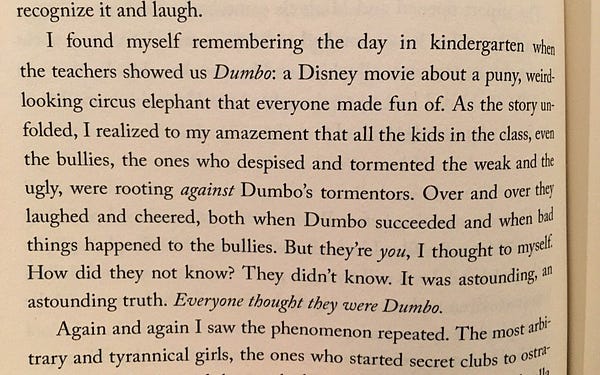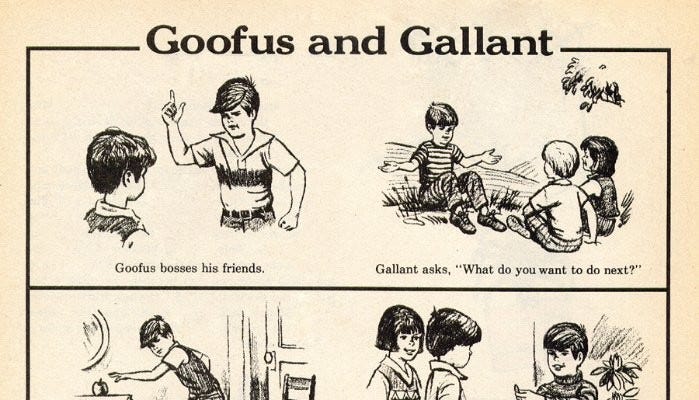Here’s a few literary stories from this week. Republican legislatures around the country are banning the teaching of the 1619 Project. A not-yet-published horror novel by a trans author was attacked across Twitter based on a three-sentence description. Two commercial authors were criticized for lines their characters said and vowed to remove them in future editions. A printer told an author they wouldn’t print any more copies of a book with “sexual explicitness”

Without weighing in on these individual controversies—I’m quite excited to read Molly Tanzer and Gretchen Felker-Martin’s books but have never read an Elin Hilderbrand or Casey McQuiston novel—it’s hardly an encouraging atmosphere for authors.
(“Mom, can you pick me up? They’re debating morality in books again!”)
One issue here is that even with justified critiques, “the discourse” quickly transforms into pile-ons from people who 99.9% of the time haven’t read the book in question and have no stake in the alleged issue. Even good faith critiques are easily coopted by people looking to tear down authors they’ve never even heard of before. And Goodreads and Amazon reviews really do matter to authors, especially since they play into the algorithms that determine what books are sold.
A recent example of this was Lauren Hough’s debut essay collection, which got a countless barrage of one-star reviews after Hough attacked some Goodreads reviewers on Twitter. Personally, I think Hough was wrong to do so. The reviews she attacked were actually positive reviews (Hough was apparently mad they were 4-stars instead of 5-stars). But you don’t have to agree with Hough’s tweets to think it’s gross for a mob of people who have never read the book to try and destroy a debut author’s career!
The issues with Goodreads site in particular are multitude, as there are basically no standards or controls in place. Reviews can be placed long before a book is even printed. Manhunt, which won’t be published until 2022(!), is already getting one-star reviews. Last month, Jason Sanford dove into some of the issues with Goodreads lack of standards and how there are even scam artists who blackmail authors with the threat of Goodreads one-star review bombs. It’s not pretty.
So this is the threat, even if the initial critics don’t necessarily advocate it. But it’s an artistically stifling atmosphere regardless.

Of course, the insistence that fiction must be morally pure is something people—especially conservatives—have been demanding since the dawn of time. (Despite what the “anti-woke” critics say, it’s still as common or more on the right than the left. The majority of books banned are banned for offending conservative sensibilities.)
But it’s perhaps strange to see those ostensibly invested in books be trying to narrow the scope of literature. Insisting that all villains must be punished. That all crimes must be condemned. That all offensive lines of dialogue get direct pushback from other characters so that no reader could possibly draw the wrong lessons. Basically, that all literature needs to be a series of Goofus and Gallant comics in which a text explicitly states what is good and what is bad.
Part of this just seems to be a fundamental misunderstanding of how art works. Art is at best a form of indirect communication in which the author can attempt to nudge readers in different directions but is unlikely to succeed. You simply can’t control what people will take from art. Right-wing fascists love to quote Orwell, a man who literally joined the Spanish Civil War to fight fascism. Paul Ryan rocked out to Rage Against the Machine while tuning up the machine. Everyone, as Elif Batuman put it, thinks they’re Dumbo.


Even when a work of fiction does have a social impact—rare these days—it’s rarely what the author intended. Upton Sinclair wrote The Jungle to try and rally America to socialism, and instead got the Meat Inspection Act.
The ideal that a book must signal so clearly delineate its author’s politics to a degree that no reader anywhere could possibly take away the “wrong” message is quite literally an impossibility. It’s just not how this works.

The insistence on moral purity in fiction is an especially odd stance in a time when—let’s just be honest—barely anyone reads fiction. The idea that a novel that will at best have a tiny fraction of the audience of Marvel movie or even the nightly news can “normalize” anything in 2021 just seems naïve.
There is, of course, lots of bad art out there. Lots of art that is sexist, racist, and so on. All of that is deserving of critique. But it’s also vital to preserve art as a space for exploration of ideas, even dark ones. Despite what some Twitter critics claim, I don’t think this is a defense of the privileged. I think it’s quite the opposite. Notice how all the writers attacked in my first paragraph were women, POC, queer or all three? We need art to the be the space where we can be messy, confused, honest, contrary, mysterious, and, yes, even wrong.
I think Ottessa Moshfegh said it well recently:
I wish that future novelists would reject the pressure to write for the betterment of society. Art is not media. A novel is not an “afternoon special” or fodder for the Twittersphere or material for journalists to make neat generalizations about culture. A novel is not BuzzFeed or NPR or Instagram or even Hollywood. Let’s get clear about that. A novel is a literary work of art meant to expand consciousness. We need novels that live in an amoral universe, past the political agenda described on social media. We have imaginations for a reason. Novels like American Psycho and Lolita did not poison culture. Murderous corporations and exploitive industries did. We need characters in novels to be free to range into the dark and wrong. How else will we understand ourselves?





I still find it interesting that the moment I published my first novel on Amazon I had a one star review on Goodreads. There are people that do it just to screw with authors.